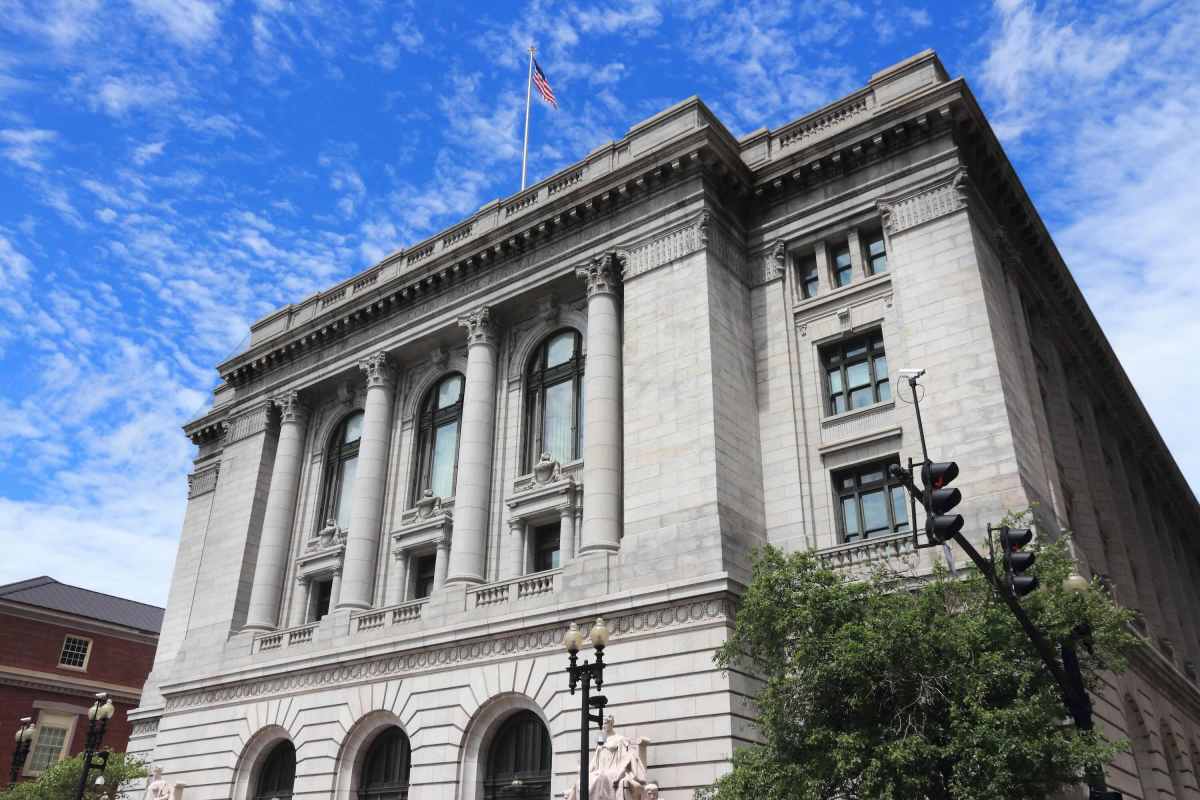

Humans have found it hard to quit fossil fuels, which is why some argue that we’ll soon need to start geoengineering — that is, modifying the atmosphere to prevent catastrophic warming of the planet.
The practice is controversial. Some argue it’s the only solution given that we’ve waited too long to reduce carbon emissions. Others say we shouldn’t be running two uncontrolled experiments on the Earth’s climate (the first being the global burning of fossil fuels).
That hasn’t stopped people from trying. And one approach championed by Make Sunsets has drawn the attention of the U.S. Environmental Protection Agency.
The startup is basically two guys from Silicon Valley who have been releasing weather balloons filled with hydrogen gas and sulfur dioxide particles. When the balloon floats somewhere past 66,000 feet in altitude, it bursts and releases the sulfur dioxide particles, which scatter and reflect sunlight, cooling the Earth a tiny bit.
The company sells “cooling credits” based on how much estimated warming each balloon release negates. Make Sunsets has raised $750,000, according to PitchBook, and the startup says its investors include Boost VC, Draper Associates, and Pioneer Fund.
Neither founder is a scientist, but the science behind sulfur dioxide and solar reflectivity is sound. Humans accidentally proved the importance of sulfur dioxide in global albedo — the average reflectivity of the Earth’s surface — when they slashed the sulfur content of marine shipping fuels in 2020; one prominent climate scientist has argued in favor of the practice.
Still, given the complexity of the global climate, it’s not clear what other effects the practice might have. It might seed rainstorms in one region while depriving other areas of rain. Several scientists have urged caution.
Plus, if sulfur dioxide particles drift closer to ground, they could aggravate people’s asthma and cause other respiratory problems. Here, the EPA takes issue with Make Sunsets’ approach to geoengineering. Sulfur dioxide is regulated as an air pollutant. EPA Administrator Lee Zeldin said this week that the agency is investigating the company.
Make Sunsets argues its actions are legal. In an FAQ on its website, the company says, “Yes, our method to cool Earth falls under the Weather Modification Act of 1976 and report yearly to NOAA of our deployments as required.”
The law is fuzzy here, though. When it was written, the Weather Modification Act was likely intended to cover the practice of cloud seeding, in which particles like silver iodide are shot into clouds to induce rain or snowfall. Most weather modification today is done by entities like ski resorts and irrigation districts in the West. It’s not clear how the law applies to climate modification.
Still, while the EPA might be justified in its investigation, it isn’t exactly consistent with Zeldin’s approach to pollution.
The agency’s efforts to boost coal are likely to generate far more sulfur dioxide pollution than Make Sunsets will release with its balloons. A Make Sunsets balloon released on November 15, 2024, released 1,715 grams of sulfur dioxide. In 2023, U.S. power plants released 650,000 tons into the atmosphere, the majority of which came from coal. That’s approximately the same amount as 343,900,000 of the startup’s balloons.
Keep reading the article on Tech Crunch

The Trump administration has made no secret that it dislikes disbursing money authorized by Congress under the Inflation Reduction Act and the Bipartisan Infrastructure Law. But on Tuesday, a federal judge issued an order “requiring the agencies to turn the funding spigots back on.”
Under President Donald Trump, federal agencies have used his executive orders to justify withholding congressionally authorized grants and contracts, many of which had already been awarded. But U.S. District Judge Mary McElroy, who Trump appointed during his first term, said the administration’s actions were “neither reasonable nor reasonably explained.”
“The broad powers that [Office of Management and Budget], the [National Economic Council] Director, and the five Agencies assert are nowhere to be found in federal law,” McElroy wrote.
In addition to Office of Management and Budget and the National Economic Council, five federal agencies are being sued by just as many plaintiffs. The EPA, for example, is being sued by the Childhood Lead Action Project, which received $500,000 to fight childhood lead poisoning in Rhode Island. The other agencies include Agriculture, Energy, Housing and Urban Development, and Interior.
This case is separate from another one, in which the Trump administration told Citibank to freeze hundreds of millions of dollars in funds already held in nonprofits’ bank accounts. In that case, a federal judge said the Trump administration — and specifically the EPA — acted in an “arbitrary and capricious” manner when terminating contracts with three nonprofits. The judge issued a temporary restraining order that required the EPA and Citibank to give the nonprofits access to funds in their accounts.
McElroy acknowledged the Trump administration is within its rights to steer the country in a certain direction, though there are limits.
“The Court wants to be crystal clear: elections have consequences and the President is entitled to enact his agenda. The judiciary does not and cannot decide whether his policies are sound,” the judge wrote.
“But where the federal courts are constitutionally required to weigh in — meaning we, by law, have no choice but to do so — are cases ‘about the procedure’ (or lack thereof) that the Government follows in trying to enact those policies.”
Many companies and nonprofits have objected through court filings to the Trump administration’s control over executive branch departments and agencies to undo the effects of legislation that was passed by Congress and signed into law under the previous administration.
Here, McElroy agrees with the plaintiffs. “Agencies do not have unlimited authority to further a President’s agenda, nor do they have unfettered power to hamstring in perpetuity two statutes passed by Congress during the previous administration.”
Keep reading the article on Tech Crunch